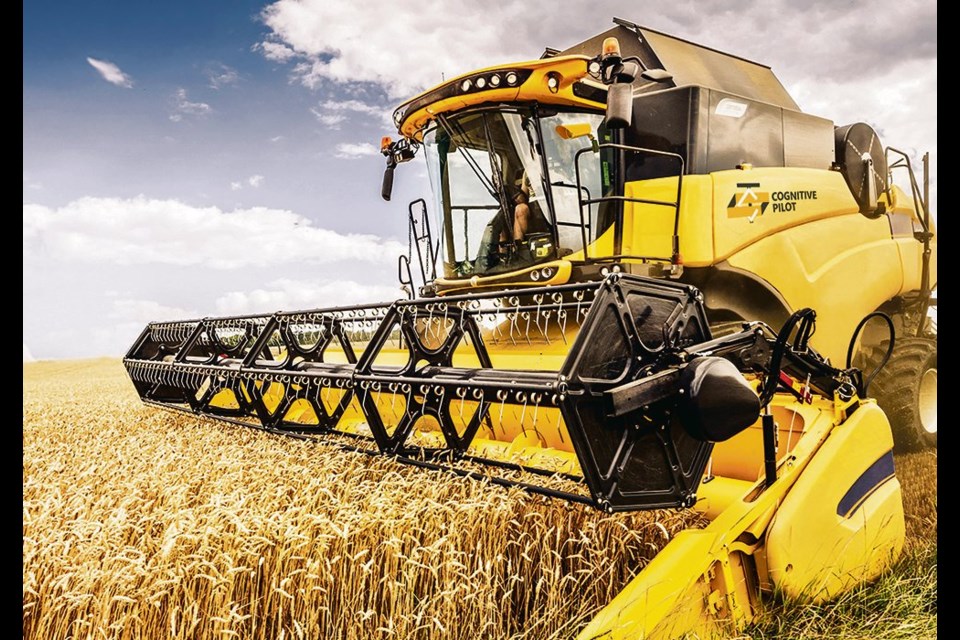WESTERN PRODUCER — Spring seeding operations are on track in Russia, but shaky in Ukraine.
This information comes from Olga Uskova, founder and chief executive officer of Cognitive Pilot, a high-tech company in Moscow.
For the 2021 harvest, autonomous Cognitive Agro Pilot systems were installed on demo combines in the United States, Russia, Brazil, Argentina, Austria, Italy, Kazakhstan and Belorussia. Autonomous combines harvested 500,000 acres securing more than one million tonnes of crop.
In an email interview, Uskova explained Cognitive Pilot’s perspective during the ongoing war, following Russia’s invasion of Ukraine.
“We produce autonomous guidance systems aimed at agriculture and food security. Such things, in principle, should not be subject to any restrictions and sanctions, because it’s strange to deprive people of food for political reasons.
“The issue of food security has no borders and no nationality. It’s a global topic for all the people living on Earth, regardless of skin colour, race or religion. The fundamental principle of Cognitive Agro Pilot system is there will be no more starving people on earth. Our autonomous control systems for agricultural machinery shows it can successfully (work to help) solve this issue in any jurisdiction, in any weather and almost any type of combine.”
In the March 17 exchange, she said Russian seeding will start in some areas in a couple weeks. She said there are no changes in the schedule or scale. All necessary equipment, seeds and fertilizer were prepared for in advance.
She said Russian agriculture is becoming less dependent on the western world for inputs and technology.
“Now Russian farmers develop corn, sunflower and other seeds, (some) that were previously purchased in Canada. Russia will have enough imported seed for the next two or three years. The domestic selection of Russian seeds is now actively developing. It’s also noteworthy that the area for farming is growing rapidly, which became possible due to the penetration of new digital technologies into the agricultural sector.”
She said it’s a different story in Ukraine where seeding has already been disrupted because fuel is directed to military needs. In many regions, logistics and infrastructure have been disrupted and destroyed. Some equipment and inputs had previously been supplied by Russia and Belarus, but those lines have been suspended. Equipment from other countries is not allowed in either.
“Unfortunately, disruptions in the supply chains of grains and oilseeds from Ukraine and Russia will have a significant impact on the level of food security around the world. Up to 50 countries that receive more than 30 percent of their grain from Russia and Ukraine may experience difficulties. According to the United Nations, many of these countries are located in northern Africa, Asia and the near East. They are classified as least developed countries or low-income, food-deficit countries.
“I hope this conflict will be resolved soon and that it will have no catastrophic impact on global food security. Everything we do within our Cognitive Agro Pilot project is a real ESG (Environmental Social Governance) project from birth. Our task is to finally make land cultivation smart, without losses, without unnecessary energy consumption and without destroying the soil. The solution of global problems depends not on human emotions and political games, but on the level of technological readiness of the agricultural sector.”
On March 14, Russian officials temporarily banned wheat, rye, barley and corn exports to the countries of Eurasian Economic Union until June 30. The supply of these products outside of Russia will still be possible, including for the provision of humanitarian assistance.
There is no ban on grain exports to European Union, United States, Canada and other western countries. Uskova said Cognitive Pilot continues to work with farmers and dealers from Canada and the U.S.

